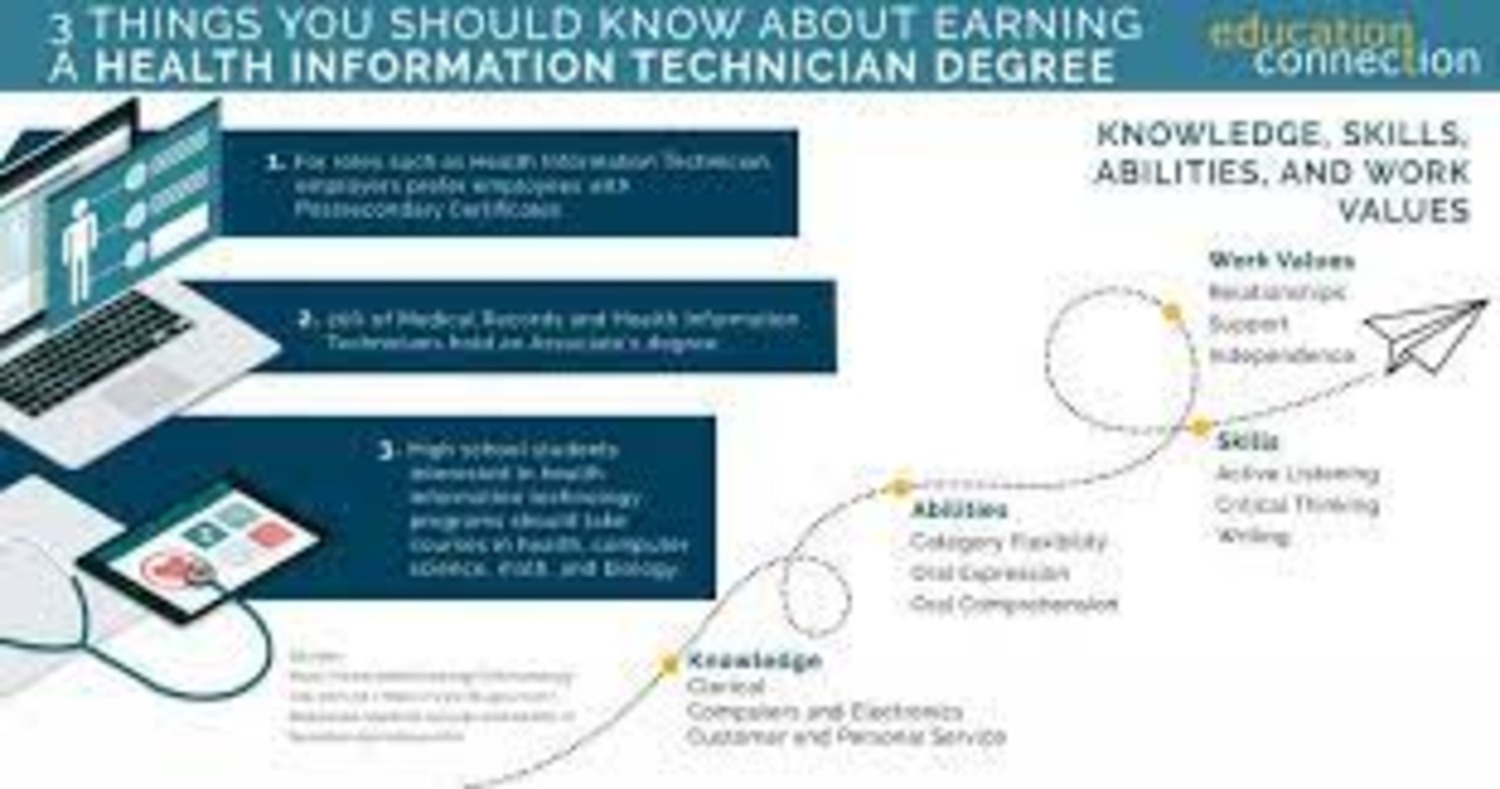HIT focuses on the systems that make healthcare possible, including those that store patient data and allow communication between doctors and patients. These professionals must have attention to detail and be able to train non-technical staff to use systems.
Associate Degree
An online associate degree in health information technology can prepare you for a career that combines healthcare and computers. This field deals with electronic methods for tracking people’s medical histories and providing them with the care they need. Hospitals, doctors’ offices, government agencies and insurance companies are always looking for workers with this type of training.
An associate program is two years long and teaches you the basics of working with medical data. You’ll learn about the types of records that are used in different settings and what is required to document them properly. You’ll also learn about the systems that are used to code and bill for healthcare services and how to protect this sensitive information.
Some programs even include coursework in medical terminology and how to read and interpret these records. Coursework focuses on the prefixes, suffixes, word roots and word construction so that you can understand the professional language that is used in health care settings. You’ll also take courses in ICD-10 and CPT/HCPCS coding procedures so that you can use the standardized codes to record and bill for patients’ treatments.
Many of these programs are offered fully online so that you can complete them from the comfort of your home. You’ll be able to take your general education and core program courses completely online and will have an on-site externship in the final semester of the program at a healthcare facility that is assigned to you.
Bachelor’s Degree
If you have good computer skills and an eye for details, a degree in health information technology might be just what you need to start your career. As the Bureau of Labor Statistics points out, healthcare is one of the fastest growing industries, and the demand for IT professionals is expected to be even higher in the future. Fortunately, there are several online schools that offer bachelor’s degrees in health information technology.
For example, MVCC offers an online HIT associate degree program that prepares students for careers in health information management in a variety of settings. In addition to core coursework, this program includes clinical experience and training in the use of a variety of software systems, including EHR programs and data analysis. Upon completion, graduates are prepared to take the Registered Health Information Technician (RHIT) exam and begin their careers in the field of health information.
Another option for earning a bachelor’s degree in health information technology is the online program offered by SNHU. This CAHIIM-accredited degree includes courses in anatomy and physiology, medical terminology, computer networks and systems, HIT software applications, human disease for the health professions, ICD coding, reimbursement processes, quality improvement and performance, and healthcare information systems. In addition to the degree, SNHU offers an optional practicum that allows students to gain hands-on work experience in the field of health information management.
Master’s Degree
If you want to move up the career ladder, consider a Master’s Degree in Health Information Technology. A graduate program requires a higher level of commitment and more advanced coursework, but the right degree can help you reach your goals. When choosing a program, look for one that is accredited by the appropriate specialized body for the degree you are seeking.
Delgado Community College offers a fully online Associate Degree in Health Information Technology that focuses on managing and recording patient data securely. Students learn to read and analyze patient charts, use specialized computer applications, and work with a variety of electronic systems. The program also prepares students to become certified professional billers and health information technicians. Students can earn certificates in medical coding and management of healthcare information resources as well.
The Bachelor’s Degree in Health Information Management and Technology is offered by the University of Wisconsin System. This program is fully online and is designed for busy adult learners who have existing college credits. It is a great choice for people who want to advance their careers in healthcare while keeping current with best practices in the industry.
The curriculum includes courses on medical terminology, HIT foundations and English composition, ICD-CM and CPT coding books, and pharmacology. Students also complete two clinical experiences. The program is accredited by CAHIIM and can prepare graduates to take the RHIT certification exam.
Certificate
The Certificate of Achievement offered by health information technology schools provides a foundation for students to enter or advance in this high-demand field. Through a series of seven required courses, students learn how to handle the technical aspects of patient healthcare records including coding for insurance reimbursement and research. The program prepares students to work in a variety of settings including hospitals, clinics and private physician offices.
The online Associate Degree of Applied Science in Health Information Management/Coding from M State is designed to help students prepare for a career in the fast-growing field of health information management. In this CAHIIM-accredited program, students will take 69 credits in total. This includes 29 credits in general education, 12 credits in medical basics and 28 in the major. Upon graduation, students will be eligible to sit for the Registered Health Information Technician (RHIT) certification exam.
The accelerated program is ideal for working professionals who wish to advance in their careers. In addition to an academically rigorous curriculum, students will have the opportunity to gain valuable clinical experience at a local healthcare facility through our student-run clinical rotations. The experience is an invaluable asset for anyone seeking a job in the field and helps them to understand the industry from a hands-on perspective. Students also will complete a capstone project and have the opportunity to apply their knowledge through an internship, if desired.

